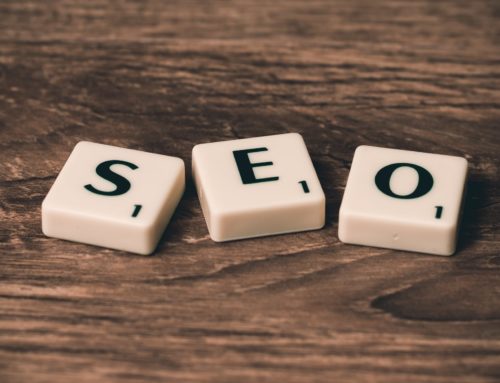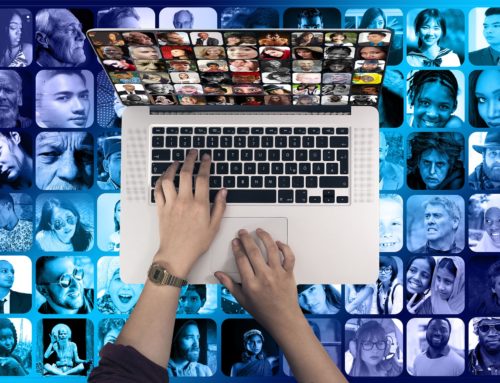 I don’t do a lot of book reviews here at WUL. For one thing, most business books are dreary reads (yes, I said it), and dreary reads are, for me, slow ones. Which means that the time I spend reading a book to (potentially) give it a review is time I could have spent doing something else… either working on my business, or doing something fun.
I don’t do a lot of book reviews here at WUL. For one thing, most business books are dreary reads (yes, I said it), and dreary reads are, for me, slow ones. Which means that the time I spend reading a book to (potentially) give it a review is time I could have spent doing something else… either working on my business, or doing something fun.
Opinions do not a critique make
The other reason is that I don’t think of myself as a book critic. That may seem a weird thing to say, at a time when most people seem to pride themselves on being some kind of critic (or so you’d think, judging by their Facebook posts), and we’re all being encouraged to post our own reviews of this site, and that site, and this book, and that book… why look, what a democratized world we live in! Our opinions matter! But opinions are one thing, informed critiques are another. At least, in my world they are.
This is probably why I don’t get asked to do a lot of book reviews. It’s not that I don’t share my opinion of books, occasionally I do. And today I’m going to do just that. Aren’t you lucky?!
Civility in the Digital Age
The book in question is Civility in the Digital Age, by Andrea Weckerle. Now, I’ve known Andrea for some years, and consider her a colleague. I’ve been impressed with her commitment to CiviliNation, the nonprofit organization she founded, and a few years ago, she helped out one of my students by offering CiviliNation as a mock “client” for the purpose of my class at Hopkins. All of which is to give you some background into how I know and regard Andrea.
So when she and Kami Watson Huyse (on CiviliNation’s Board of Directors) asked me if I would like to read her book, to possibly write a review, I agreed. Therefore, please note that I received a free (digital) copy of the book, but the writing of this post is entirely of my own choosing.
When I started reading Civility in the Digital Age, I knew it would take me a while. Not because it was a dreary read – it’s actually not – but because it is very thought-provoking. I still haven’t finished it, but if I don’t get this post out the door soon, I never will.
Yea or nay?
If you’ve stayed with me this far, you’ve figured out that I’m probably going to tell you that, in my opinion, you should read the book. And you’re right.
Now, since I haven’t quite finished reading the book (though I almost have!), I can’t tell you whether all the stories it cites are the best ones at hand, or whether it’s a better piece of work than other comparable works. I can tell you that it’s an important subject, and you and I have talked about it fairly recently here at WUL.
So when someone takes the trouble of writing a book about it, especially someone who is a part of our community, I think the least we can do is read it. Andrea shares the stories of some people I know, as well as those of many I don’t. Some stories are familiar, many others are not. And in my unformed opinion, her training and background in conflict resolution and mediation comes across strongly, as there are several exercises to go through, such as determining your conflict style (and don’t tell me you don’t have one, everyone has one).
As I’ve been reading, I’ve noticed that Andrea veers quite a bit into privacy and online reputation management because, of course, if online conflicts are not properly managed, they can affect both of those as well. So while I wouldn’t call this a reputation management handbook, there are some very practical tips to do so.
The chapter on legal aspects of online disputes and conflicts is very interesting… and aren’t such legalities on everyone’s mind these days? And while the final chapter of the book will probably take more than 30 days to implement (it’s titled a “30-day Plan for Better Conflict Management Online”), it has some very good ideas and practical tips.
So, all in all, this is a book that I will likely go back to read every now and again. That’s a good book. And I am personally grateful to Andrea for writing it in her ongoing quest to create a more civil framework for the discourse that is so vital to our online and offline wellbeing.
Images courtesy Andrea Weckerle, used with permission
Have you read, or do you plan to read, Civility in the Digital Age? Are there other books you’ve read on the topic that you feel are worth sharing? Please let me know in the comments below.









[…] see, in the past few months I’ve encountered some truly despicable behavior in the digital space. No sugar-coating […]
Very interesting topic Shonali and very complex. Social Media and Blogging has allowed people who before would only behave aggressively among friends or public. Like fliping the bird on the road at someone. Or getting outraged when talking politics at home or with friends.
But now we can share outrage online which is the tame side to the really far reaching bullying. And we can do it anonymously if we so desire. I surely have flexed my ‘Righteous Views’ defending the meek or the weak or attacking those unethical. And it is very hard to keep the level of discourse civil for me when someone is being a scum or sleaze or plain evil …to me which is of course the heart of the issue. Everything is subjective.
During the healthcare debate I found a huge current of racism and hatred on Twitter that shocked me. And ironically a good portion came from people not hiding behind a nickname. And I wonder if those eople would say the same things if they had to say them to someone’s face?
Howie Goldfarb Exactly. It is a fascinating phenomenon while it’s also frightening, and it’s something we are all guilty of, to a greater or lesser degree. I think how “righteous” one feels plays into it, and that, frankly, is up for debate, right? I mean, what you or I might think is righteous, might not be perceived as such by someone else. That’s why it’s so important when disagreeing, to keep the focus on the point at hand and not the person, and that is more and more what I’m trying to do.
Thanks for stopping by, Howie! Are you going to get the book?